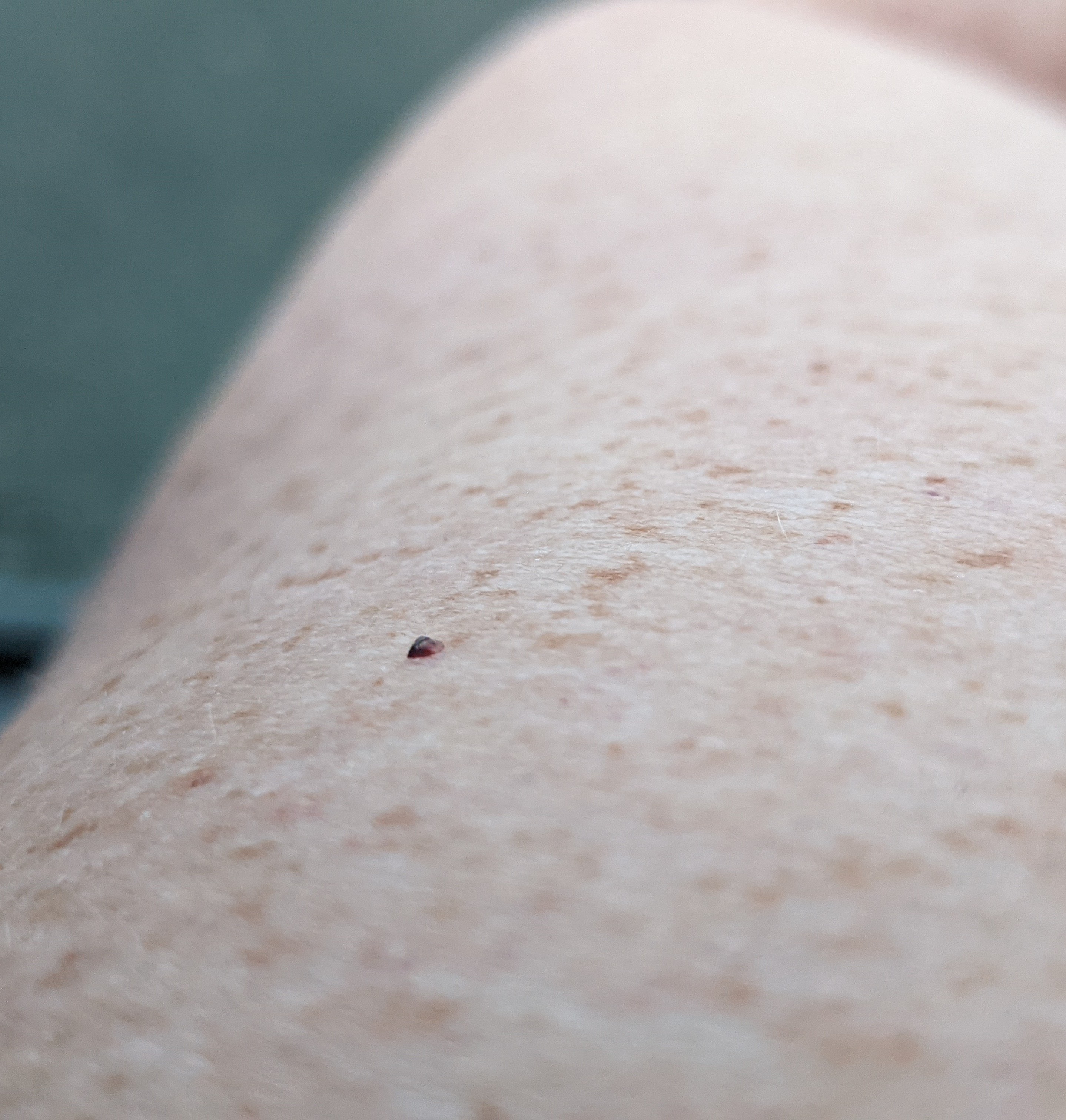 As mentioned in a previous article, vaccines can be tough on people with Hereditary Alpha Tryptasemia Syndrome. The Moderna booster for COVID-19 was no exception. Bottom line: 2 sleepless nights, and the day between them was not too bad.
As mentioned in a previous article, vaccines can be tough on people with Hereditary Alpha Tryptasemia Syndrome. The Moderna booster for COVID-19 was no exception. Bottom line: 2 sleepless nights, and the day between them was not too bad.
My local hospital gave me my 1st 2 doses of Pfizer. Since I was struggling to get an appointment for a third dose of Pfizer there, I opted to get the only thing offered at my local pharmacy, Moderna. Having read a Reuters article about mixing the doses, this decision seemed both logistically pragmatic and medically beneficial.
After the 3rd dose, the so-called booster, I did not experience significant pain at the injection site. Neither was there swelling or redness, which was a pleasant surprise.
The next morning, I struggled to get up, because of a migraine. The barometric pressure was low, and there was a significant snow storm event, so I immediately attributed the migraine to those factors. About 7:00 p.m., however, I started to realize that I was physically off. Symptoms:
- Migraine
- Freezing cold, requiring extra clothing and blankets, but not being able to regulate the cold
- Inescapable heat, requiring no clothing nor blankets, putting water on my face and turning up the ceiling fan
- Aching in shoulders, arms, and legs
- An inability to sleep, despite tiredness and pain
- Overnight, repeated need to urinate (5 times, and compared to 0 to 1 normally)
At 10:00 p.m., I finally remembered that I had received the booster shot, and then firmly placed the cause for all of these issues there. (Before, I had been afraid that I might be sick.)
At 11:30 a.m. I woke, fully rested and feeling as if nothing had happened.
The bottom line is, if that 24 hours of feeling crummy protects me from significant illness or hospitalization, I'll take it.
Related article:
